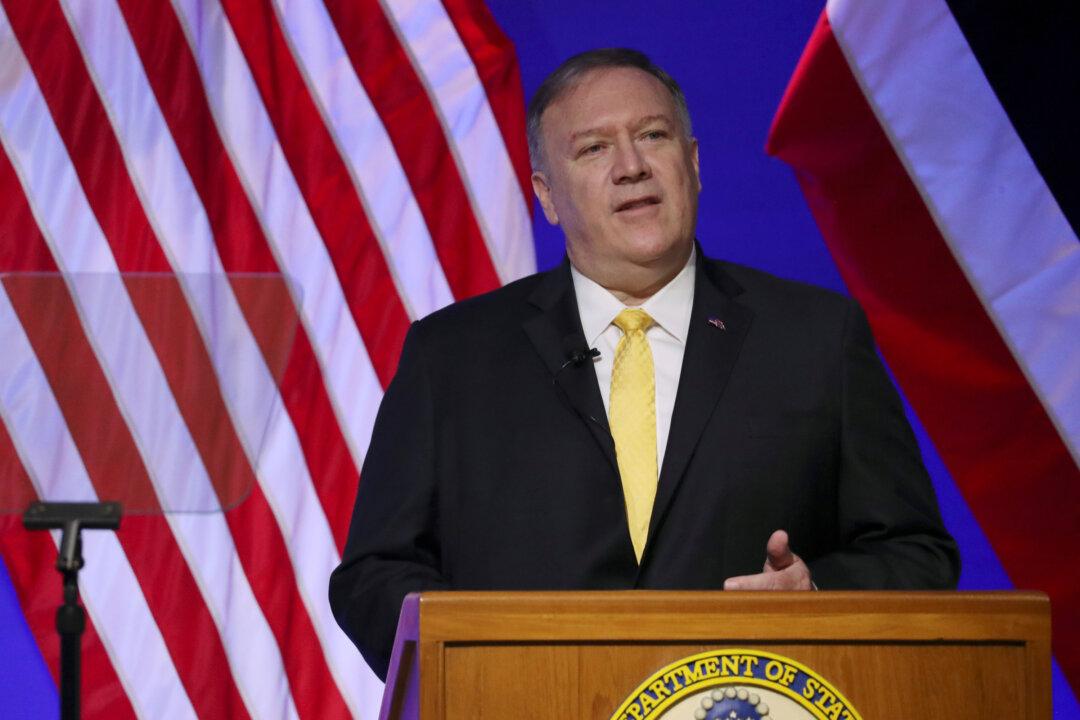BANGKOK–U.S. Secretary of State Mike Pompeo on Aug. 2 decried “decades of bad behavior” from China that have hampered free trade, laying out a case at a Southeast Asian forum for Washington’s escalating trade war with Beijing.
Pompeo’s statements came after President Donald Trump on Thursday announced he would slap a 10 percent tariff on the remaining $300 billion of Chinese imports starting Sept. 1, abruptly ending a truce in year-long trade dispute between the world’s two largest economies.





